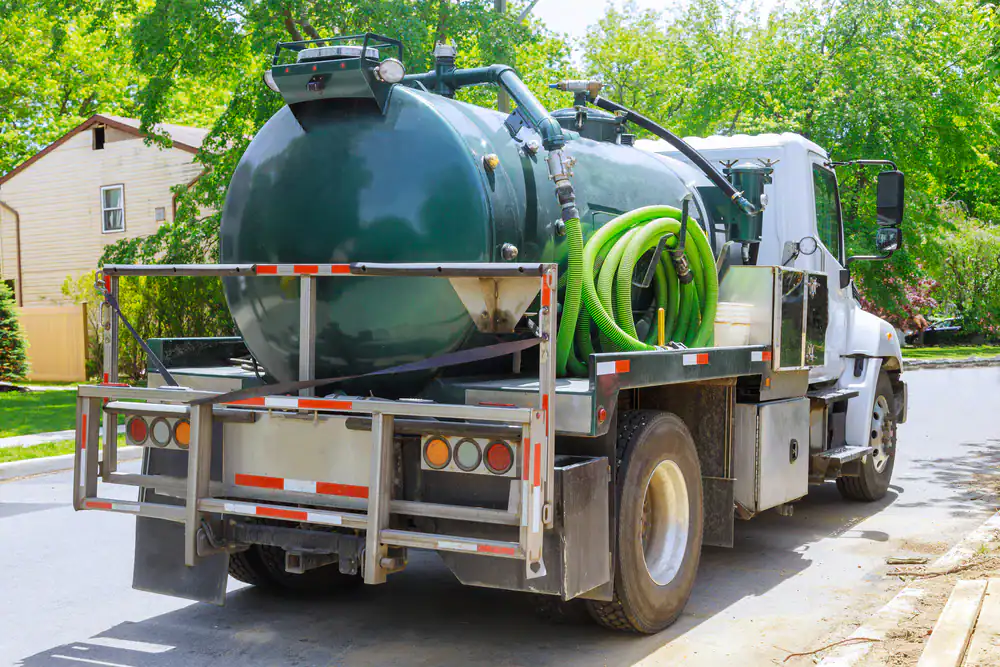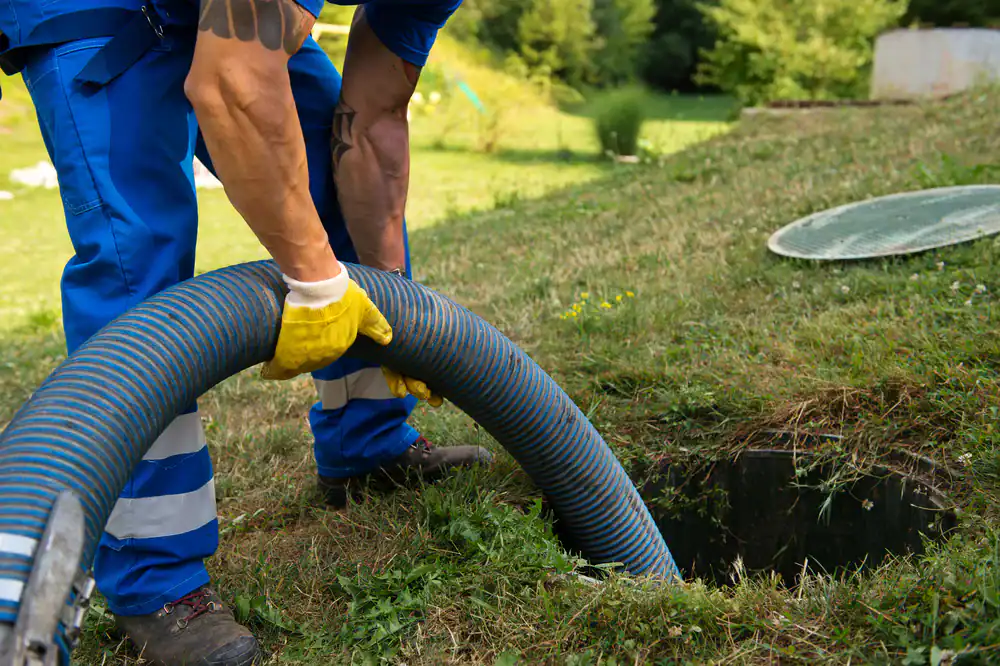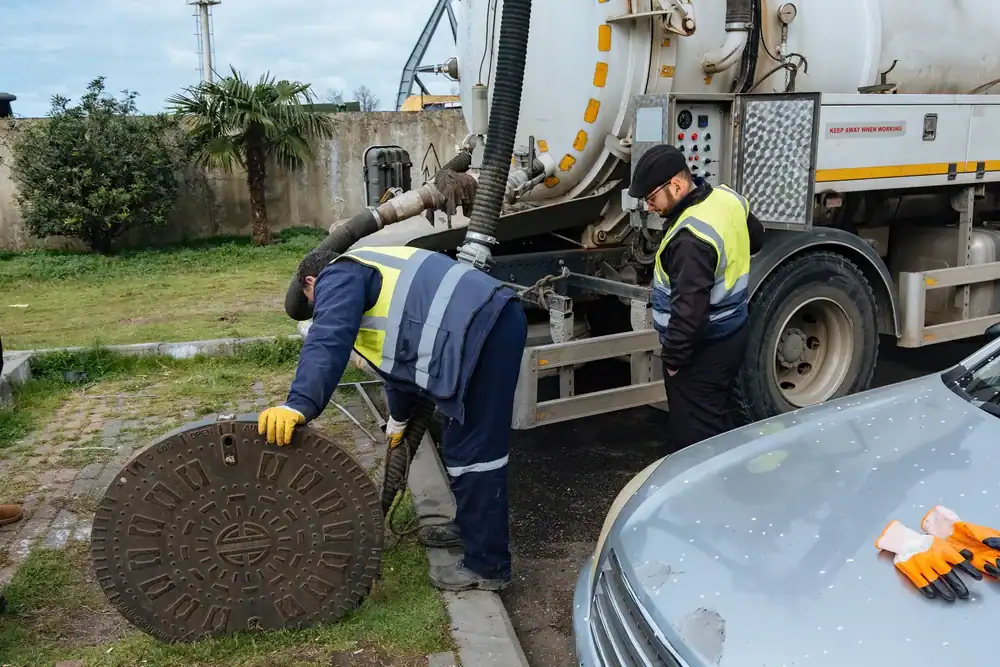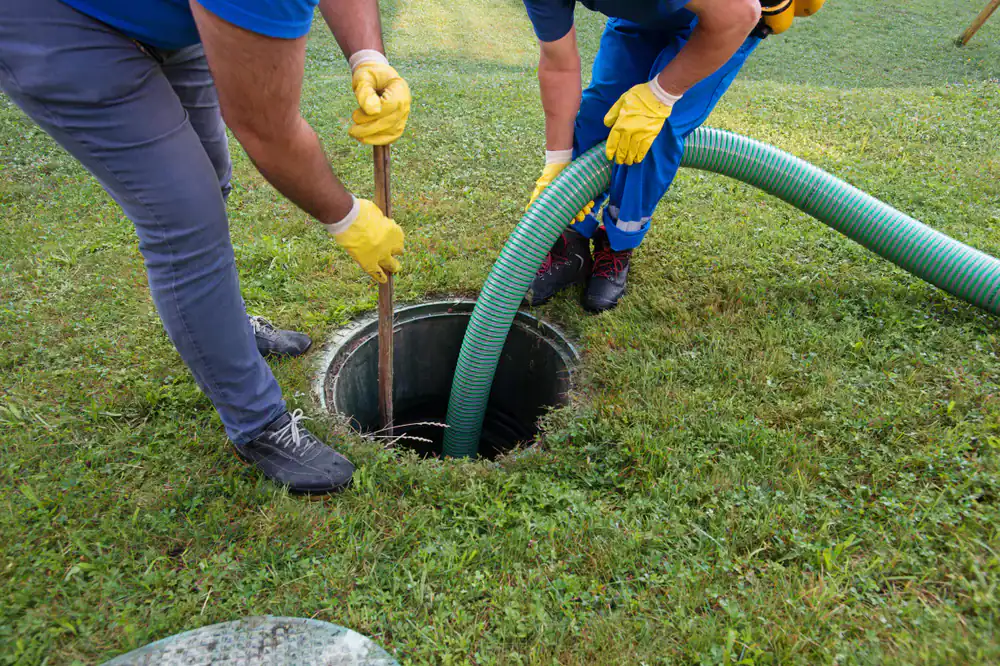
Our Reviews

You wake up to sewage backing up through your drains. Your yard smells like a sewer. Your toilets won’t flush properly. These aren’t just inconveniences – they’re emergencies that can damage your property and threaten your family’s health.
When your septic system fails, you need someone who understands the urgency and has the expertise to fix it fast. You need septic tank plumbing services that work the first time, not someone who’ll leave you dealing with the same problems next week.
That’s exactly what you get with our professional septic system repair in Country Club Hills. No more sleepless nights worrying about backups. No more explaining to guests why your bathroom smells. Just a septic system that works like it should, backed by professionals who know what they’re doing.
All Rooter Hydro Jetting Experts Inc. has been solving septic problems for Chicago area homeowners who need reliable solutions, not empty promises. We specialize in the full range of septic services, from emergency repairs to routine maintenance, serving Country Club Hills and surrounding communities.
What sets us apart is our understanding of Illinois septic regulations and local soil conditions that affect how septic systems perform in this area. Country Club Hills sits in Cook County, where clay soil and seasonal weather changes create unique challenges for septic systems that many contractors don’t fully understand.
Our team is licensed, bonded, and insured, which means you’re protected whether it’s a simple repair or a complex drain field restoration. We’ve seen every type of septic problem that can happen in the Chicago suburbs, and we know how to fix them right the first time.

First, we assess your septic system to identify exactly what’s wrong. This isn’t guesswork – we use professional equipment to locate problems in your septic tank, distribution box, or drain field. You’ll know what needs fixing and why before any work begins.
Next, we handle any required permits through Cook County health department, because septic repairs in Illinois require proper permits and inspections. You don’t have to navigate the bureaucracy yourself – we know the process and take care of it.
Then we complete the repair using the right materials and methods for your specific system. Whether it’s septic line clog repair, drain field restoration, or tank repairs, we use techniques that solve the problem permanently, not temporarily.
Finally, we test the system to make sure everything works properly and explain what you can do to prevent future problems. You get a septic system that functions correctly and knowledge about how to keep it that way.

Ready to get started?
Our professional septic tank plumbing services include everything from emergency repairs to preventive maintenance. When sewage backs up into your home or your drain field fails, emergency septic repairs can prevent thousands of dollars in property damage and health hazards.
Country Club Hills homeowners face specific septic challenges due to the area’s clay soil composition, which doesn’t drain as well as sandy soil. This means drain fields can become saturated more easily, especially during Illinois’s wet spring seasons. Our professional septic drain field restoration addresses these local conditions with solutions designed for Cook County soil types.
Our septic line clog repair handles blockages in the pipes connecting your home to the septic tank or from the tank to the drain field. These clogs often happen gradually, starting with slow drains and progressing to complete backups if not addressed promptly.
Regular septic system maintenance, including pumping every 3-5 years as recommended by the EPA, prevents most emergency situations. Illinois regulations require septic tank evaluation within three years of installation, and our professional maintenance keeps your system compliant while extending its lifespan significantly.

Most septic tanks in Country Club Hills need pumping every 3-5 years, but the exact timing depends on your household size and water usage. A family of four with a 1,000-gallon tank typically needs pumping every 3-4 years, while smaller households might go 4-5 years.
Illinois regulations actually require septic tank evaluation within three years of installation to determine if pumping is needed. The evaluation checks if scum and solid layers exceed 33% of the tank’s liquid capacity. If they do, pumping is required.
Country Club Hills’ clay soil doesn’t absorb water as quickly as sandy soil, which can put extra strain on your septic system. This means you might need more frequent pumping than homeowners in areas with better-draining soil. We can provide a professional inspection to determine your specific pumping schedule based on your system’s actual condition.
Sewage backing up through drains or toilets is the most obvious emergency sign that requires immediate attention. This means your septic tank is full or your drain field has failed, and continued use can cause serious property damage and health hazards.
Persistent sewage odors in your yard, especially near the drain field area, indicate your system isn’t processing waste properly. Strong smells that don’t go away after a few days usually mean effluent is surfacing instead of being absorbed into the soil.
Slow drains throughout your home, soggy areas in your yard, or unusually green grass over your drain field are warning signs that often precede complete system failure. These symptoms mean your septic system is struggling and needs professional assessment before it becomes an emergency.
Yes, Illinois law requires permits for any septic tank construction, repair, or alteration through your local health department. In Country Club Hills, that means working with the Cook County Health Department to obtain proper permits before starting work.
The permit process ensures repairs meet Illinois Administrative Code requirements for septic systems and protects both your property value and public health. Unpermitted septic work can result in fines and may need to be redone to meet code requirements.
We handle the permit application process because we know the specific requirements and documentation needed. We understand which repairs need permits versus simple maintenance that doesn’t, saving you time and ensuring compliance with local regulations.
Septic tank pumping typically costs $250-$895 depending on tank size and accessibility. Simple repairs like replacing a baffle or fixing a pipe connection might cost $300-$800, while more complex issues like drain field problems can range from $2,000-$10,000.
Emergency septic repairs often cost more than scheduled maintenance because they require immediate response and may involve more extensive damage. A complete septic system replacement can cost $10,000 or more, which is why regular maintenance and prompt repairs are much more economical.
Country Club Hills’ clay soil can make some repairs more challenging and expensive than in areas with sandy soil. We provide accurate cost estimates based on your specific system type, soil conditions, and the extent of repairs needed. We offer upfront pricing so you know costs before work begins.
Tree roots commonly cause septic line clogs and can crack septic tank walls or distribution boxes as they search for water and nutrients. Mature trees within 50 feet of your septic system pose the highest risk, especially willows, maples, and other water-loving species.
Root intrusion often starts small but grows worse over time as roots expand inside pipes and tanks. Initial symptoms include slow drains or gurgling sounds, but eventually roots can cause complete blockages or structural damage requiring expensive repairs.
Our professional septic line clog repair can remove roots and repair damage, but prevention is more cost-effective. Avoid planting trees near your septic system, and consider root barriers if you have existing trees that can’t be removed. Regular septic inspections can catch root problems before they cause major damage.
Never put grease, oils, or fats down your drains because they solidify and can clog your septic system. Coffee grounds, cat litter, cigarette butts, and feminine hygiene products don’t break down properly and can cause blockages or tank overfilling.
Household chemicals like bleach, drain cleaners, paint, and pesticides kill the beneficial bacteria in your septic tank that break down waste. Without these bacteria, solid waste accumulates faster and your system stops working effectively.
Excessive amounts of any liquid can overwhelm your septic system, including water from leaky toilets or long showers. Country Club Hills’ clay soil drains slowly, so your drain field needs time to absorb effluent. Spreading out water usage throughout the day helps your septic system function properly and prevents backups.